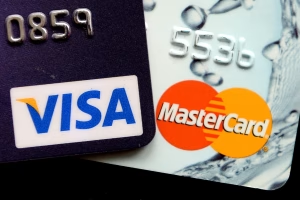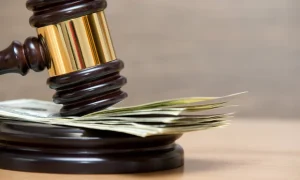Navigating customer relationships and maintaining a profit isn’t easy for modern businesses. Too often, bridges are burnt due to poor communication and misplaced expectations. If you’re falling short, chargebacks may become frequent, which could result in your processor dropping your account. Although banks tend to favour the consumer, merchants aren’t powerless. There are plenty of ways you can legally protect yourself against chargebacks and related fees.
What is a chargeback?
Chargebacks, which occur when a cardholder requests their bank to reverse a credit charge, are a costly consequence of doing business. Most merchants know what a chargeback is, but they don’t know how to prevent them or protect themselves when they inevitably occur.
There are several reasons why a chargeback may happen:
- Duplicate billing
- The product or service received wasn’t as described
- Technical error
- The product or service was damaged, lost, or incomplete
- A recurring bill wasn’t cancelled as requested
- The product or service wasn’t received
- Fraud
While some chargebacks can be prevented by adopting better business practices, too many chargebacks occur due to “friendly fraud” or when a customer reverses a charge for no reason.
Chargebacks represent a growing financial threat for merchants, and when they occur too frequently, a business’s reputation could suffer. This makes it impossible for businesses to work with banks or credit card companies in the future, destroying their livelihood in the process.
How to reduce chargebacks
Unfortunately, merchants won’t be able to completely avoid or prevent chargebacks, but there are ways you can reduce fraudulent claims. Take the following steps to reduce chargebacks:
- Create standard procedures for accepting credit cards
- Train employees on these procedures
- Evaluate your team and policies periodically
- Address verification issues immediately
- Create a detailed product or service descriptions
- Make a clear, easy to find refund policy
- Write billing descriptions with product descriptions
- Post your contact info on your website and social media
- Offer top-notch customer service
- Define shipping expectations at checkout
If chargebacks are regularly occurring, it becomes essential to analyse chargeback incidents. This way, you can either fight these incidents or adjust your policies. Remember that you can file to reverse a chargeback, but the likelihood of you winning is, unfortunately, very slim.
Can merchants reverse a chargeback?
Anytime a customer files a chargeback claim, the business has to pay a nonrefundable fee, ranging from $20-$100 per chargeback. Even if the merchant files a dispute and wins, they still have to pay this fee. Multiple claims put merchants into a costly monitoring programme.
While yes, reversing a chargeback is possible, the odds aren’t in the merchant's favour. Card issuers usually side with the cardholders automatically. If a merchant decides to respond to this dispute, they must provide accurate documentation and proof they provided satisfactory service. Oftentimes the issuer will reject the second dispute, even if the merchant was in the right. When this occurs, merchants have the right to request arbitration and help from an attorney.
What can merchants do after the second dispute?
When a merchant files for a second dispute and gets rejected by the issuing bank, they can still fight the charge. Typically, the issuer will review the documentation they receive and come to a formal decision. If the customer has a history of chargebacks, the merchant may win their case.
In instances where the merchant is rejected twice, they can request arbitration. It’s unwise to submit the same evidence that was denied during the first and second disputes unless you wish to add to the documents you sent. Either way, the issuer will weigh the aspects of the case.
Once a verdict is reached at the arbitration stage, it cannot be appealed. It’s vital that you understand the reason code and bring all evidence needed to support your case.
You have a right to an attorney at any point during the process. Companies can hire lawyers to represent them in chargeback fights. While you may feel that you’re at the mercy of a larger credit card company, you do have a say over the outcome if you have adequate representation.
Good chargeback management firms have teams of seasoned law professionals that know the ins and outs of dealing with card networks and banks. With the right legal team by your side, you’ll be able to win chargebacks and gain insight on how to prevent them in the future.





















